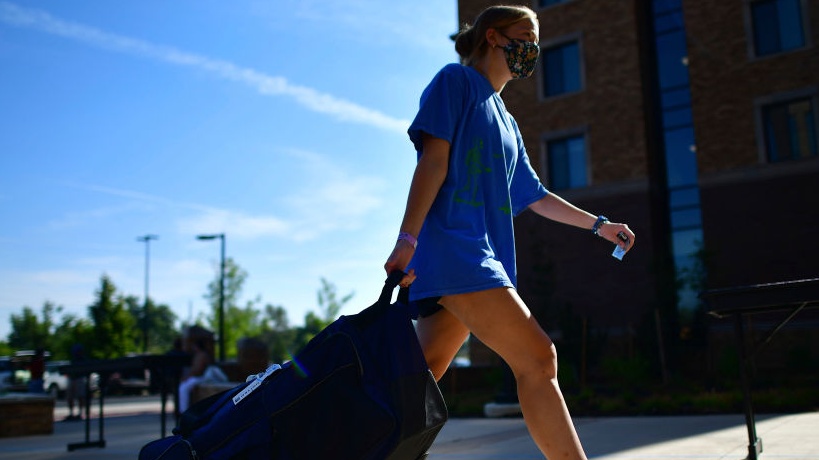A new study from the University of California Los Angeles (UCLA) found that Black people still face overwhelming discrimination when searching for housing, particularly when searching for roommates.
UCLA assistant sociology professor S. Michael Gaddis and Elon University assistant professor of sociology Raj Ghoshal conducted a study where he emailed roommate seekers and pretended to be individuals from different racial or ethnic backgrounds by signing their emails with names such as Ebony Washington and Riya Patel.
Gaddis and Ghoshal sent more than 4,000 emails using names representative of different races.
The emails with Black names received nearly half as many responses compared to the responses received by white names, with Asian and Hispanic names in various parts of the middle.
"Black senders received only 66 percent as many responses as white senders, whereas one to one and a half generation Hispanic senders received 71 percent as many responses as White senders. Black room-seekers fare the worst: Their response ratio of .63 indicates a Black room seeker would need to send about 50 percent more inquiries to receive the same number of responses as a white room-seeker," Ghoshal and Gaddis wrote in the study.
"We found evidence that millennials discriminate against Indian, Chinese, Hispanic, and Black room-seekers. Among Asians and Hispanics, those with fully ethnic or traditional names faced significant discrimination, whereas those with Anglicized variants were treated more closely to whites."
Along with the study, the researchers sent out a succinct infographic that explained exactly how this plays out. For every 10 emails sent by people with white names that were responded to, just six were responded to when substituted for Black names.
The study is particularly pertinent considering the global protests against racism and discrimination that took place last summer.
While the protests were heavily attended by millennials, the study finds that a significant number of young people still carry the discriminatory ideas of past generations.
"First, our study documents a tiered pattern of discrimination among millennials. This pattern bears both similarities and differences to patterns enacted by decision-makers from previous generations. Our finding of substantial anti-Black bias is consistent with much prior experimental research across various domains," the researchers wrote.
"That the use of Anglo first names reduced discrimination for members of groups in the 'racial middle' provides insight on the potential future shape of the racial/ethnic hierarchy. If later generation Hispanic and Asian immigrants are allotted status in closer proximity to whites, as our study suggests, the future racial order may indeed see these groups move closer to 'becoming white' along with the persistence of a Black/non-Black color line."
Housing discrimination is still a major issue for millions of Black people across the United States. Even with the addition of dozens of laws at the state and federal levels banning housing discrimination, Black people still face significant barriers when it comes to selling and buying homes or renting apartments.
Black homeowners routinely have to remove photos of themselves and their families in order to get fair appraisals, according to The Hill.
The housing crisis of 2008 and 2009 disproportionately affected Black homeowners, according to The Washington Post, destroying a generation of wealth built through homeownership in just a few years. The newspaper quoted a study that found Black people were 70 percent more likely to lose their homes to foreclosure at the time.
Black people lost 240,020 homes due to foreclosure between 2005 and 2008, according to the Center for Responsible Lending.
The Urban Institute wrote in May that due to the coronavirus pandemic, Black homeowners were more likely to have missed or deferred their mortgage payment than white homeowners. Prospect found that the country's largest banks, like Wells Fargo, had given Black people subprime mortgages on purpose, knowing they would not be able to pay it back and would have to sell their homes.
The City of Baltimore sued Wells Fargo after the crisis and an employee of the bank said in court that the bank specifically created a special unit in 2001 that aimed to push Black homeowners to take out expensive refinance loans, according to Prospect. The unit specifically targeted Black neighborhoods, and in the end, was successful.
The New York Times reported that Wells Fargo officials called these "ghetto loans" and routinely called Black customers "mud people."
